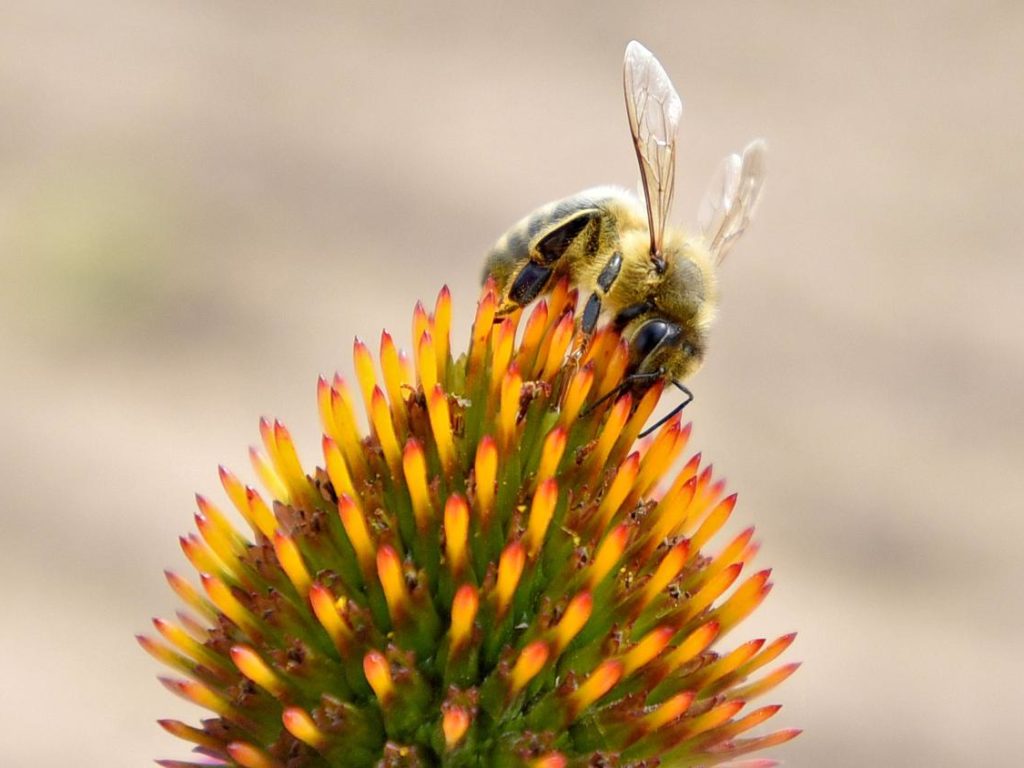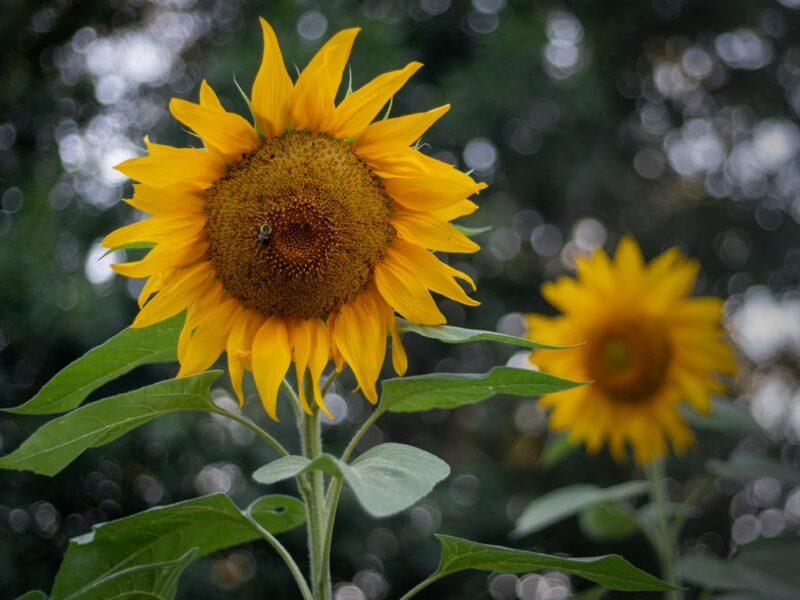Bees are an essential part to our ecosystem and livelihood and they are far more important than you might think. Bees create jobs, and make money. The value of their pollination is estimated to be around $16 billion in the U.S. alone. A recent Salon article shows that bees are essential to our ecosystems, for plants and forests are natural systems that protect our soil and provide clean water. In Ohio, the Department of Transportation, or ODOT, has begun planting wildflowers along highways across the state with the goal of creating habitats for pollinators. Each site requires $400 to get started, but ODOT press secretary Matt Bruning said the project will save Ohio taxpayers millions. In Chicago, a small working farm on a rooftop has become the first certified organic farm of its kind. The farm is also engaged in teaching locals how to produce their own food and why it’s important. We need more regulations on chemicals such as glyphosate. There is a myth started by the chemical companies that regulations stifle economic productivity. But, in truth, harmful chemicals cost the US $340 billion a year. In other news, months after federal jurors dealt a huge blow to Monsanto, saying its Roundup weed killer contributed to a man’s cancer, a judge decided to soften that blow by $55 million.
A look inside the first certified organic rooftop farm in the country
A Chicago restaurant and an all-natural, certified organic rooftop farm has been certified by the Midwest Organic Services Association. This makes the farm, community center and restaurant the first of its kind in the U.S. Co-owner of Uncommon Grounds, Helen Cameron, says Uncommon Grounds is “a small working farm that provided food for a restaurant, provided a community center and place for people to learn how to grow food and a place for us to teach people about local food and why that’s so important.”
How banning dangerous chemicals could save the US billions
It’s a myth that environmental regulations stifle economic productivity. Harmful chemicals cost the US $340bn a year.
Bees: Bugs you can’t live without
Bees are an essential part to our ecosystem and livelihood. They are far more important than you might think. Bees create jobs, and make money. The value of their pollination is estimated to be around $16 billion in the US alone. And, as Dr. Hoekstra points out, bees are essential to our ecosystems, for plants and forests are natural systems that protect our soil and provide clean water.
Wildflower Planting Project Is Saving Taxpayers Millions in Mowing
If you drive Ohio highways you may have noticed more flowers and taller grass on the side of the road. The Ohio Department of Transportation has begun planting wildflowers along highways across the state with the goal of creating habitats for pollinators. Each site requires $400 to get started, but ODOT press secretary Matt Bruning said the project will save Ohio taxpayers millions.
Bee Alert: Is a Controversial Herbicide Harming Honeybees?
Recent court cases have focused on the possible
effects of glyphosate, found in Monsanto’s Roundup, on humans. But researchers
are now investigating whether this commonly used herbicide could also be having
adverse effects on the health and behavior of honeybees.
https://e360.yale.edu/features/bee-alert-is-a-controversial-herbicide-harming-honeybees?fbclid=IwAR0risvNG2hXGTxXR2Eb0Cm1UqG_Dycqc8VD-Q5PEBaAdoP44cEcAQeUiJo
US judge slashes $80 million award in Monsanto cancer case
Months after federal jurors dealt a huge blow to Monsanto, saying its Roundup weedkiller contributed to a man’s cancer, a judge decided to soften that blow by $55 million. Edwin Hardeman was the first cancer patient to take Monsanto to federal trial over Roundup. Across the country, more than 11,000 plaintiffs are suing Monsanto, saying Roundup caused non-Hodgkin’s lymphoma. Federal jurors in California sided with Hardeman and awarded him $80.27 million in March — about $5.27 million in compensatory damages for his pain and suffering, and $75 million in punitive damages to punish Monsanto.









